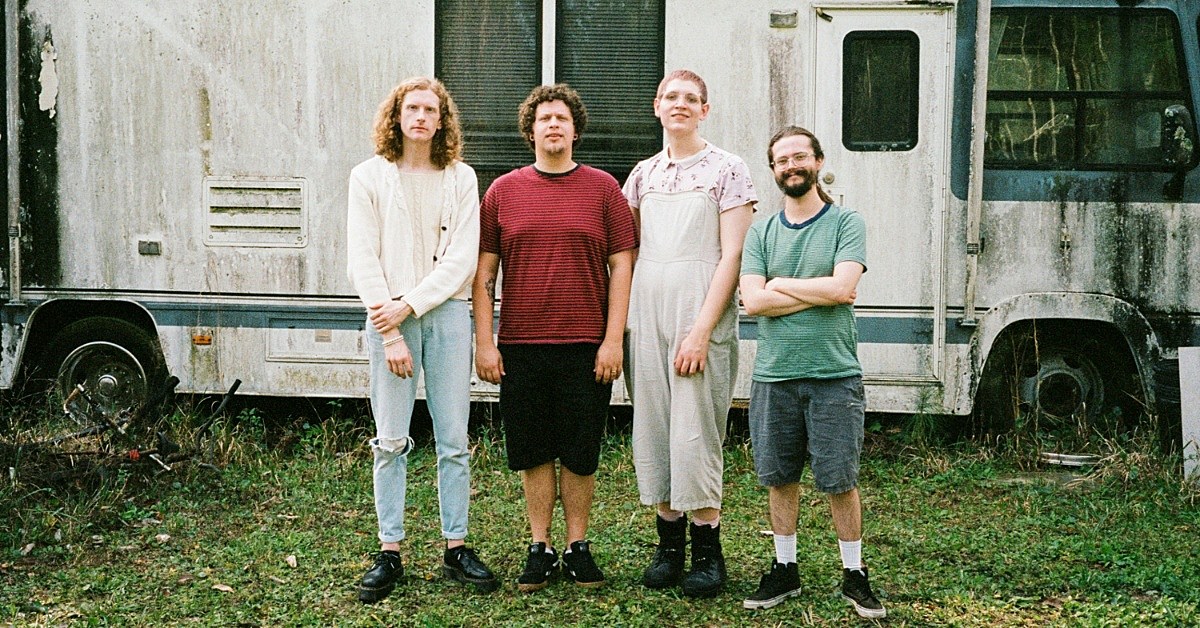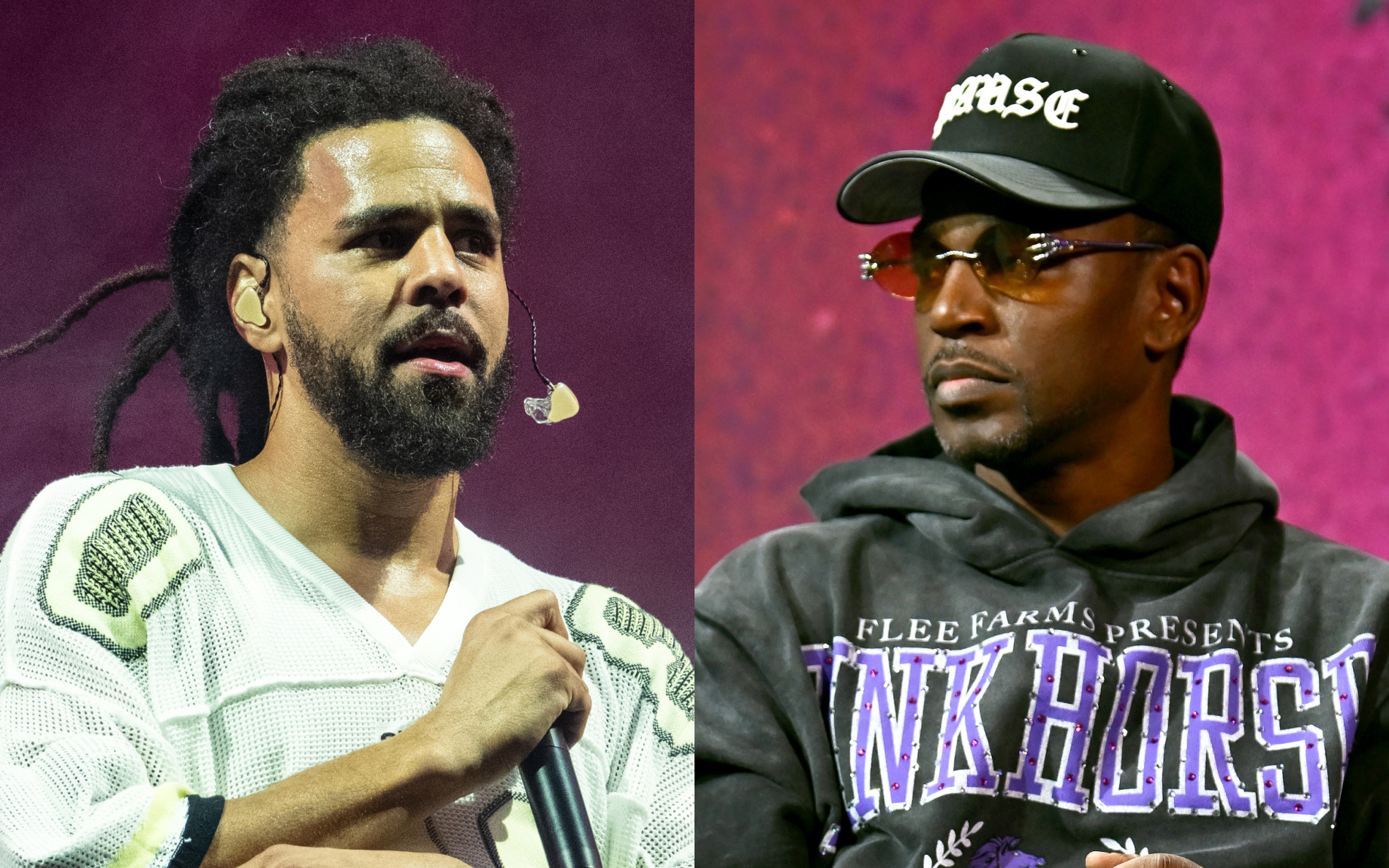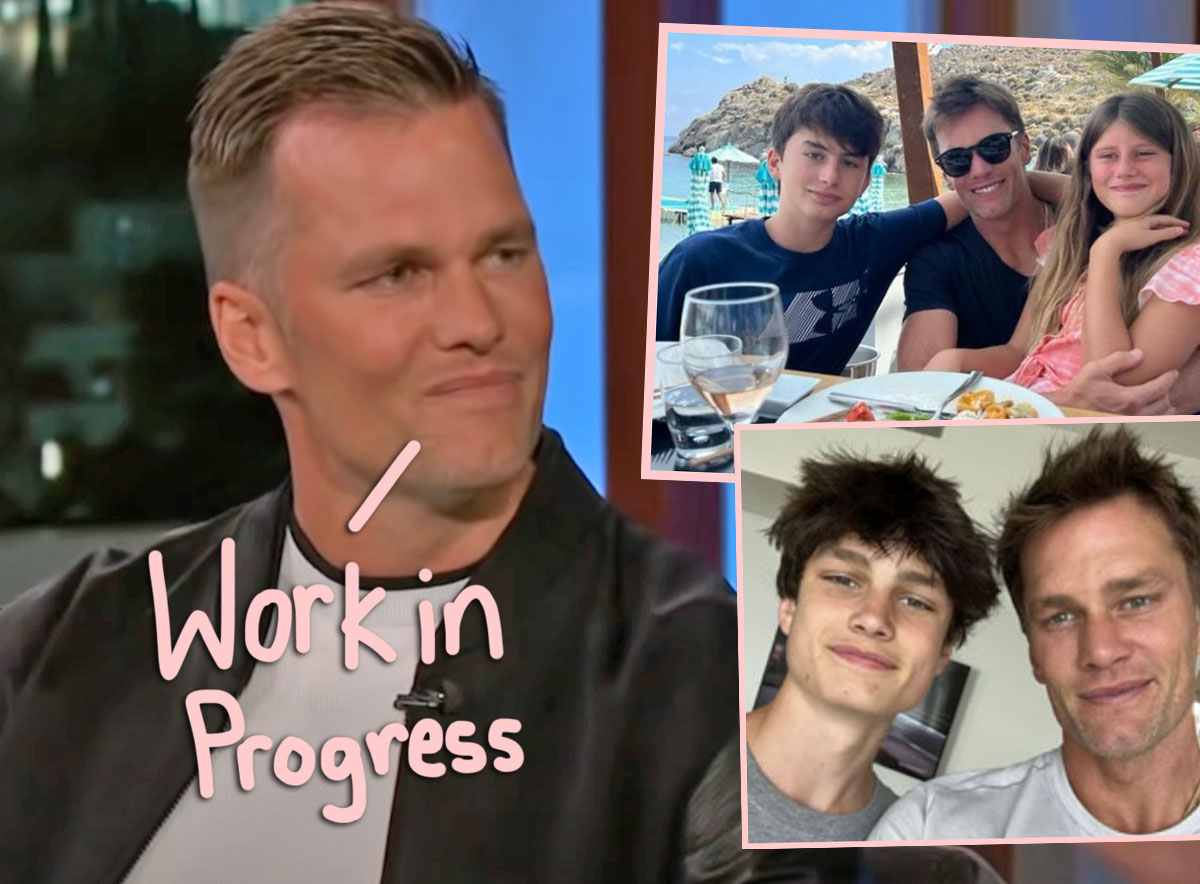On the new Home Is Where album, The Whaler, there’s a song called “Every Day Feels Like 9/11.” On the day that I speak to vocalist Brandon MacDonald and guitarist Tilley Komorny, the sky across the East Coast is yellow with wildfire smoke, and it’s easy to understand what MacDonald meant by that. It also makes the following song, “9:12,” hit even harder. “And on September 12th, 2001, everyone went back to work,” are the only lyrics in the track. Amid climate disasters, LGBTQ+ persecution, and white supremacist violence, every day, and the one after, holds some form of trauma.
Read more: 5 greatest emo songs of all time
The Whaler deals with those feelings through unflinching, unsettling imagery and exorcistic emo-folk—opening the album with the lines, “Kites and intestines tangled in branches / I’m spilling my guts to the gutless”. MacDonald is a poetic lyricist and an intense vocalist, maybe one of the most striking frontpeople in the indie underground right now. It’s this that made the band’s 2021 debut I Became Birds an instant emo classic. It spread fast across Twitter upon release, with fans praising the band’s Elephant 6-indebted sound and MacDonald’s vivid lyrical dissection of gender dysphoria.
The Whaler is darker than that album, musically and lyrically, but there’s still warmth in the band’s fervent fan support. Home Is Where’s motto is “Our band could be your neighborhood.” The community the group is building is growing ever more important. MacDonald and Komorny are both trans women, as are many of the fans that hold Home Is Where dear, and in the band’s home state of Florida, anti-trans laws are rapidly being passed. It’s tough to know if there’s a solution, and a certain hopelessness is at the crux of The Whaler. That makes it all the more vital to those who show up to yell along at the shows.
In Alt Press’s conversation with MacDonald and Komorny below, we get to know the band’s origin story, and why they compare this brutally despairing album to Seinfeld.
How did you each get into the world of DIY music?
Brandon: I kind of fumbled into it. I just wanted to write songs. Playing shows and getting involved with people was super cool and a total positive, but it wasn’t social for me. I just wanted to make art, that was the only thing. But the social aspect of it, I’ve got to meet people I probably wouldn’t have otherwise met, and have changed my life in one way or another.
Tilley: When I was 15, there wasn’t any all-ages venue in my town. So myself and I think three other people, we got together a PA and set it up in a headshop called Green Life, and we started throwing all-ages shows. It was a really small but really cool scene of like, emo and post-hardcore style bands in our area. I met a lot of really cool people through that, and that’s how I ended up having any reason to move up to North Florida. It’s been how I’ve found my friends and community for sure.
When you first started, or early in the project, what was the goal for Home Is Where?Brandon: I wanted it to be something for my immediate friend group to be able to dance to and scream to and get together and hang out to. The whole point of it was just to try to make something beautiful. And I don’t know how successful we are, but we try our best to make something beautiful every time.
Like you said, you just wanted to make something for your immediate friend group. As it turned out, when I Became Birds came out, it had a much, much wider reaction than that. How did you take that?Brandon: It didn’t feel real, and it still kinda doesn’t feel real. It’s probably not real. I mean, I’m eternally grateful for it. It’s still something I’m processing. In internet years or music years, it feels like it came out a while ago, but in all honesty, it’s really not been that long. And it’s kinda a big adjustment, like, without any in-between, going from being a completely local band to having the Washington Post write about a show you played. It’s great in a lot of ways, and very, very weird in a lot of other ways. But I’m grateful for it. I definitely feel validated for sure. I feel like if we stopped doing this tomorrow, it was all great. [But] I guess I felt that way before too.
Let’s talk about The Whaler. What was the process of writing it musically?
Tilley: Most of the time if we weren’t writing on tour, it was over a Facetime. And then essentially me creating a demo and bringing it to the band and then we all work together. There was this idea that it would be like a pop record, akin to like Beach Boys Smile Sessions type stuff. It’s got a lot going on, instrumentally and just thematically.
And once we were able to be in a setting like the studio that we recorded in with Jack Shirley, there were so many more resources that were possible to us, like shit that we just simply either a) can’t afford or b) didn’t know we could do. We just knew the sound and were like, how does that sound work? And it’s like, oh, you put a tape in a microwave and then you like loop it around a hi-hat stand and play it in reverse. Stuff like that. And yeah, we became like Jack’s kids, just playing with all of his tambourines and kazoos and shit.
Is there anything particularly cool you ended up trying?
Tilley: There’s an avant-jazz noise section at the end of the first song. And that rules. It’s just all the spaghetti thrown at the wall. Just every idea possible. And in the recording, we went to — our friend Joey Tobin was documenting it, and they brought a little field recorder, like an audio recorder. We went to like a smash room and broke a bunch of stuff with hammers and baseball bats and shit, like TVs and dinner plates and bottles and furniture and things like that, and recorded all of those sounds. And it was really fun to put that into a transition piece, just like a little sound piece. That was super fun.
How about the lyrical process?
Brandon: Every song kinda comes from a different place. There’s some songs that are like frankensteins of different poems, where I took the lines that stood out and stitched them together. And then there’s ones that are just written beginning to end with some kind of narrative or idea, and then there’s others that just kinda start off with a word or an idea or an event or a person, and then you build it over time. It’s different, cause for Birds it took me like 9 years to write the lyrics. And to kinda have had a chance to let that go — I felt lost for a minute, ‘cause it’s like seeing your baby go off to college. It’s like empty nest syndrome. I was trying to think about where my head was at at the time, and where the world was at from my immediate perspective, like my gut reaction to certain things. The process that it took or whatever, I don’t wanna repeat it. It got to a pretty dark place. But in the studio, it’s crazy, because these songs that started out as something almost like… I don’t wanna say I was afraid of them or whatever, but they’re just kinda heavy for me. And then to go into the studio, I had the best time, like the most fun I think I’ve ever had, making this record. So I got closure with it almost. ‘Cause there was like a minute where I almost hated it, because it’s coming out of just – you know, it’s like finding a piece of gold in a pile of manure. But, yeah, recording it, it felt like I was free, like the gates were opening or something.
The album deals with the constant trauma of the apocalyptic world we live in. What conclusion do you come to, if any?Brandon: I’ve seen [in] different write-ups and stuff for the record that it’s like life-affirming, or I keep seeing the word “catharsis.” And I don’t feel that at all. I don’t feel like there’s any catharsis. The record literally doesn’t end, it just continues to loop and loop and loop until you decide it’s over. A reason why I have such a complicated relationship with this record is because to me, it comes across hopeless. Maybe I’ll have a different interpretation of it over time. But it came from those kinda thoughts that you don’t believe but you think when your fucking back is just against the wall. I don’t mean to like, sound like fatalistic or nihilistic or anything like that. I’m glad that people are getting something positive out of it when they’re listening to it at the very least. But there’s no message, there’s not like a moral, I’m not trying to preach anything. It’s observational. It’s like Seinfeld. [Laughs]
It’s a particularly terrifying time to be trans in the United States, especially in Florida. What does it feel like to be in that state right now, and what’s your relationship with your home state at the moment?Brandon: It feels like 9/11.
Tilley: Brandon moved [away] a little while ago, and I’ll be moving soon. I lost my healthcare and things, which is pretty crazy. And also there’s a bathroom ban now and shit, and they’re trying to pass a drag ban similar to how they did in Tennessee. I believe I speak for Brandon in this too, that we both genuinely really like Florida.
Brandon: Yeah, I love Florida. My heart aches. I wish I could live there still.
Tilley: Yeah. We’ve got a lot of really good friends who are still going to be living here. And it’s not safe, which is awful, ‘cause it’s genuinely the most beautiful place on earth that I’ve seen. I was up in the northeast recently, I was in Boston. And nobody looks at you. You can just kind of be a person. I can use the women’s restroom. It’s amazing. You don’t get that here. I just got back from Planet Fitness, and I went in a sports bra and got a fucking death stare from everybody. That’s not the case in other places. You see that and you’re like, wow, you don’t have to live in a perpetual hell, which is pretty cool.







